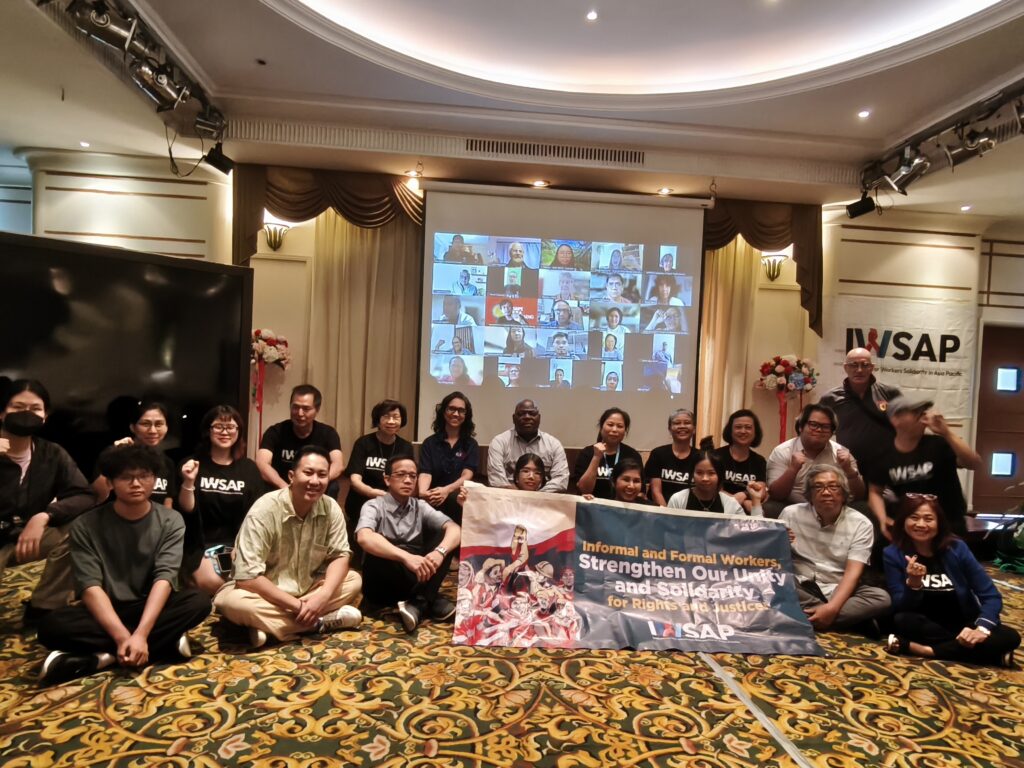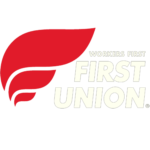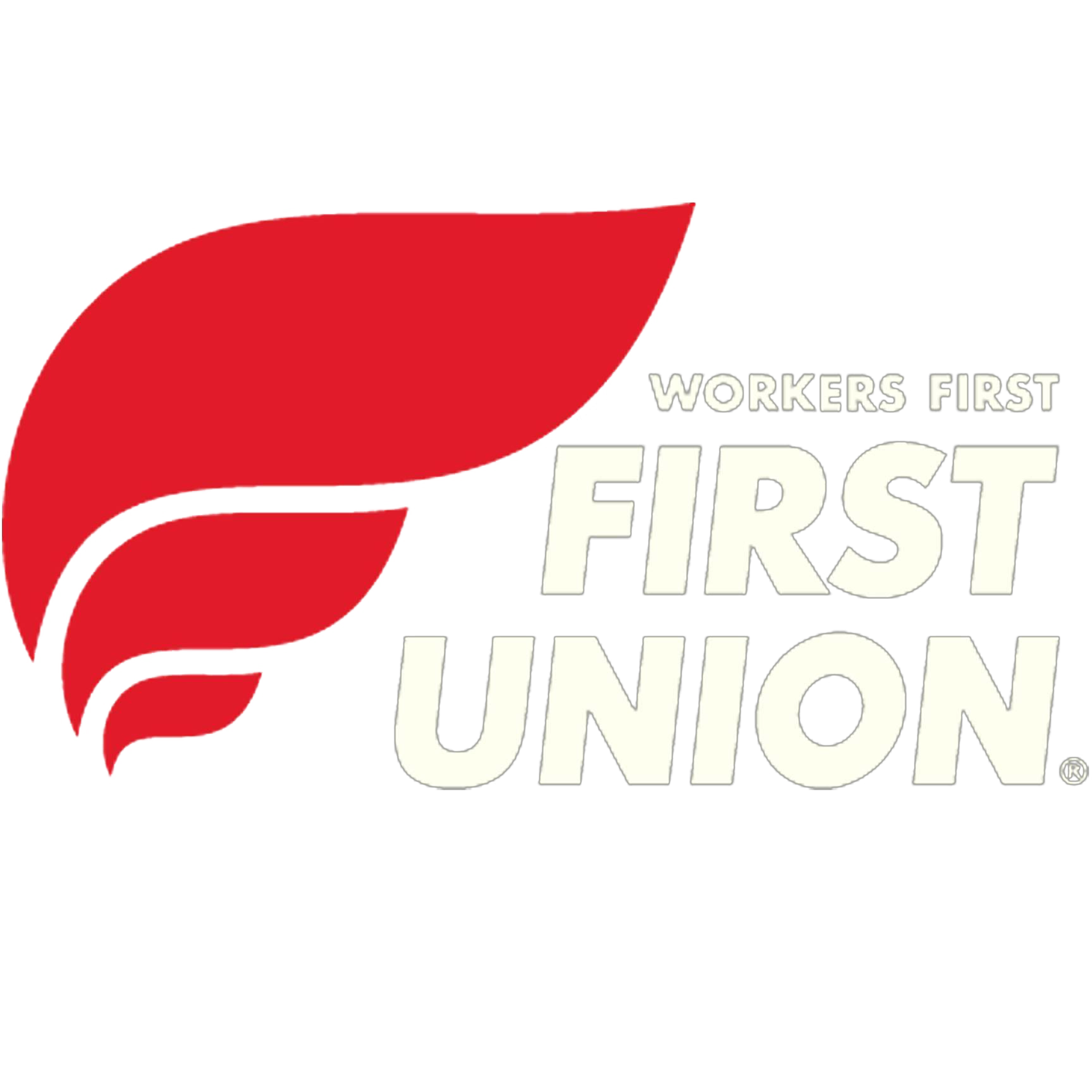
Our modernizing world has exposed to us the acute exploitation that workers have to face just to be able to make ends meet. Informal and formal workers alike in the Asia Pacific region alone are at the forefront of shouldering multiple personal and systemic burdens. It is in this context that the Initiatives for Workers Solidarity in Asia Pacific (IWSAP) presents itself as an avenue which will bridge the gaps between informal and formal workers who must organize themselves to overcome structural barriers to achieve decent work, living wages, social protection and many more.
As a start in upholding the mandate of IWSAP, the organization launched the formation and the results of its first Workers’ Study Conference (WSC) last 30 May 2025 in Bangkok, Thailand and online. The event gathered 23 in-person participants from Kaagapay ng Migranteng Pilipino sa Thailand (KMPT), Workers Union of Thailand, Southern Riders Association, HOMENET, Migrant Domestic Workers Network of Thailand, representatives from the International Labor Organization (ILO), as well as some Myanmese and Thai university students. At the same time, 57 participants joined online hailing from Australia, Japan, New Zealand, Sri Lanka, Bangladesh, Hong Kong, South Korea, the Philippines, Indonesia, Cambodia, Thailand, Middle East, and Nepal. Big trade unions such as UnionAid and the International Transport Workers’ Federation (ITF) from New Zealand were also present, as well as representatives from UN WOMEN.
Grounded in Reality
Bungon Tamasorn, IWSAP’s board chairperson, welcomed the participants in a video recorded message, impressing the importance of organising and working with informal workers, and their unity with formal workers in their fight for rights, wellbeing and dignity. Following this, a short video was presented to the participants, introducing IWSAP and some salient points from the WSC Results.
Lei Covero, the Southeast Asia Coordinator of the Asia Pacific Mission for Migrants (APMM) presented the results of the first WSC. The first WSC was held on November 23-24, 2024 in Bangkok, Thailand as well. The results highlighted the realities on the ground of informal workers, specifically those who do gig and platform work, domestic migrant work, and agricultural work among others. Issues of women in informal work were also discussed, emphasizing the gender biases they experience in the workplace and the double burden of earning an income while taking care of the family. The WSC Results revealed the continuing precarious conditions of informal workers in the region ranging from lack of decent work and social protection, discrimination, non-inclusion in labor policies, and slave-like conditions in workplaces among others.
But despite the seemingly bleak situation of many informal workers, there are efforts to counter the current structures that oppress both them and even formal workers today. Research initiatives and campaign-building are just two of the main works of different workers’ organizations and associations that contribute to strengthening their ranks. Lei ended her presentation with an inspirational quote urging the participants to take on the cause of building strength and solidarity with informal and formal workers – “If we don’t struggle, who will? If we don’t struggle now, then when?”
Voices for change
As a sign of support from some participants, video and in-person messages were shared by Workers First Union, Southern Riders’ Association, Coalition of Agricultural Workers International (CAWI), the Asian Migrants Coordinating Body (AMCB), the Kaagapay ng Migranteng Pilipino sa Thailand (KMPT), and the Asia Pacific Mission for Migrants (APMM). The organizations expressed their support to the IWSAP and vowed to continue the fight for workers’ rights and dignity, and further solidify the unity of informal and formal workers in Asia Pacific.
The IWSAP also presented the Bangkok Commitment, a declaration of commitment to support the formation of IWSAP, its initiatives, and the collective work of building unity and solidarity among informal and formal workers in the region. The Bangkok Commitment has garnered 18 endorsements as of writing – a reflection of the urgency to come together for the rights and dignity of workers.
Paving our path as one
To galvanize the IWSAP’s next steps, Elna Abila of KMPT presented concrete points of actions that the organization will take on in the future. She shared the plans on conducting research projects, capacity-building of partners and workers, and bolstering support to workers’ campaigns.
With the conclusion of the launch, IWSAP is positive of what needs to be done and reaffirms its role in bridging the struggles of informal and workers in Asia Pacific. From hereon, the IWSAP is excited to propel more activities and events, contribute to broadening understanding on workers’ issues, and prop up initiatives and demands of workers in the region.
See photos from the launch below!





